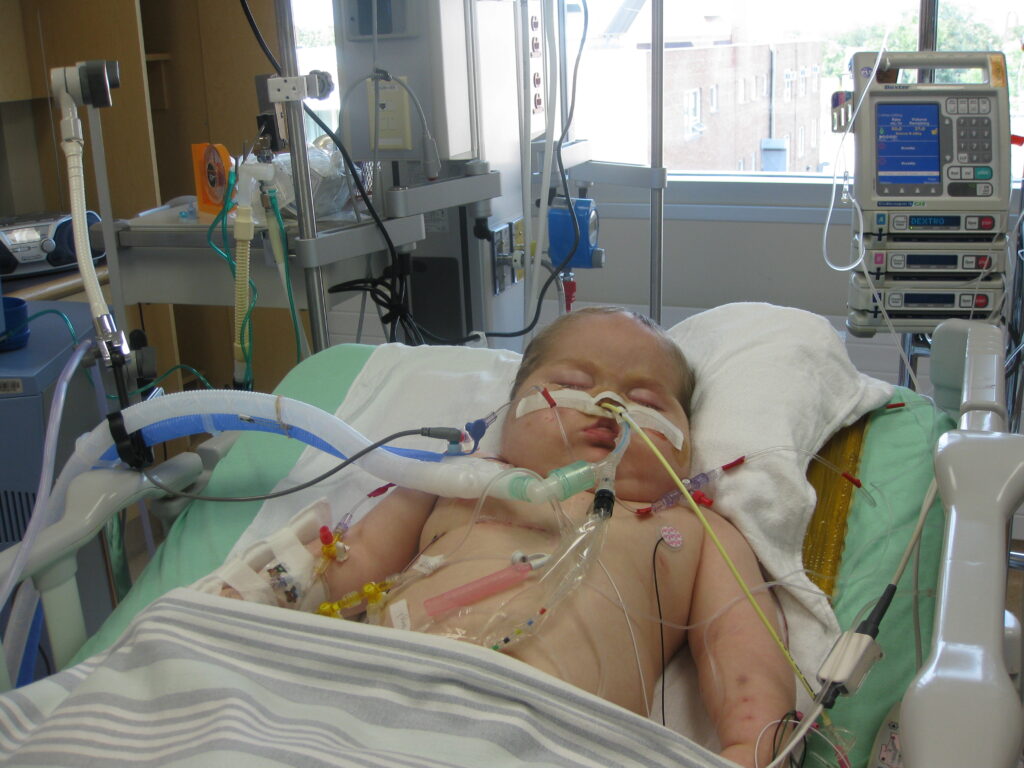Mothers are typically a bundle of nerves – it seems to come with the territory.
For most, the nervousness is needless, but even while pregnant, Liz Bannister had every right to be anxious.
Early on in her pregnancy, she was told she would likely miscarry, and later, that the baby had heart problems and a club foot. When Max was born, he had an overwhelming eight holes in his heart as well as narrow airways.
Max went through a lot as a baby – he had pneumonia, bronchiolitis, blood clots, paralyzed vocal cord, open heart surgery, cardiac arrest and a massive gastrointestinal bleed, among other challenges. In his first four years, he had more than 20 surgeries. Doctors had to continually dilate his airway to help him breathe, until a tracheotomy and then a tracheoplasty (where rib cartilage was inserted into his throat) were performed to open his airways. Post-surgery, Max was put into an induced coma to prevent injury while his throat had a chance to heal.
After his time in the Intensive Care Unit (ICU), Max was moved to a monitored bed unit, that allowed his parents and health care team to keep a close eye on him and continually monitor his oxygen levels, respiratory rate, heart rate, blood pressure and medications.

“Instantly my stress would drop knowing he was being moved to a monitored bed. I knew he would have 1:1 or 1:2 nursing and they would get an alarm if his oxygen levels were dropping,” says Liz. “It also meant he was out of ICU and a step closer to going home again.”
While the dropping of levels would sound the alarm bells, the continuous monitoring gave Max’s parents some comfort as they could watch the levels and when a simple cough made levels jump, they could monitor the return to normal.
“The beeping of his heart rate and lights of other monitors was reassuring to hear and see,” says Liz.
Max has had many hurdles thrown in his path, but he has learned to jump over them and keep running. And thankfully, Max wasn’t alone in this race.
“They never gave up on my son,” says Liz of the HSC Children’s Hospital staff who have continually cared for Max.
“It was amazing what they figured out. Children’s Hospital has some of the best doctors and researchers looking after Max. They were always trying new things, investigating new research and learning ways to best help a child in Max’s position.”
Max now has a coarse voice from the surgeries done on his throat, but he has not been admitted to the hospital since the tracheoplasty was done. Max has developmental delays and will likely need some support throughout his life, but he is a happy child. He loves playing sledge hockey (an adaptation of ice hockey for those with physical disabilities) and became interested in watching wrestling with his dad while at home during COVID (when it was the only sport on tv!).
Liz will always be thankful to the incredible team of doctors, nurses and behind-the-scenes staff who helped her son. “This hospital performs miracles,” says Liz. “They’ve saved Max’s life on multiple occasions. Max kept fighting and the team kept fighting alongside him.”
While Liz could never have predicted the difficulties Max would face, she’s grateful that the Children’s Hospital and its donors were there to support her family.
“Supporting the hospital ensures that the services will be there when your own grandchild, neighbour or friend needs help.”
Stay in touch!
Sign up for e-news to get updates on the latest events, news, and stories.
sign up for the newsletter